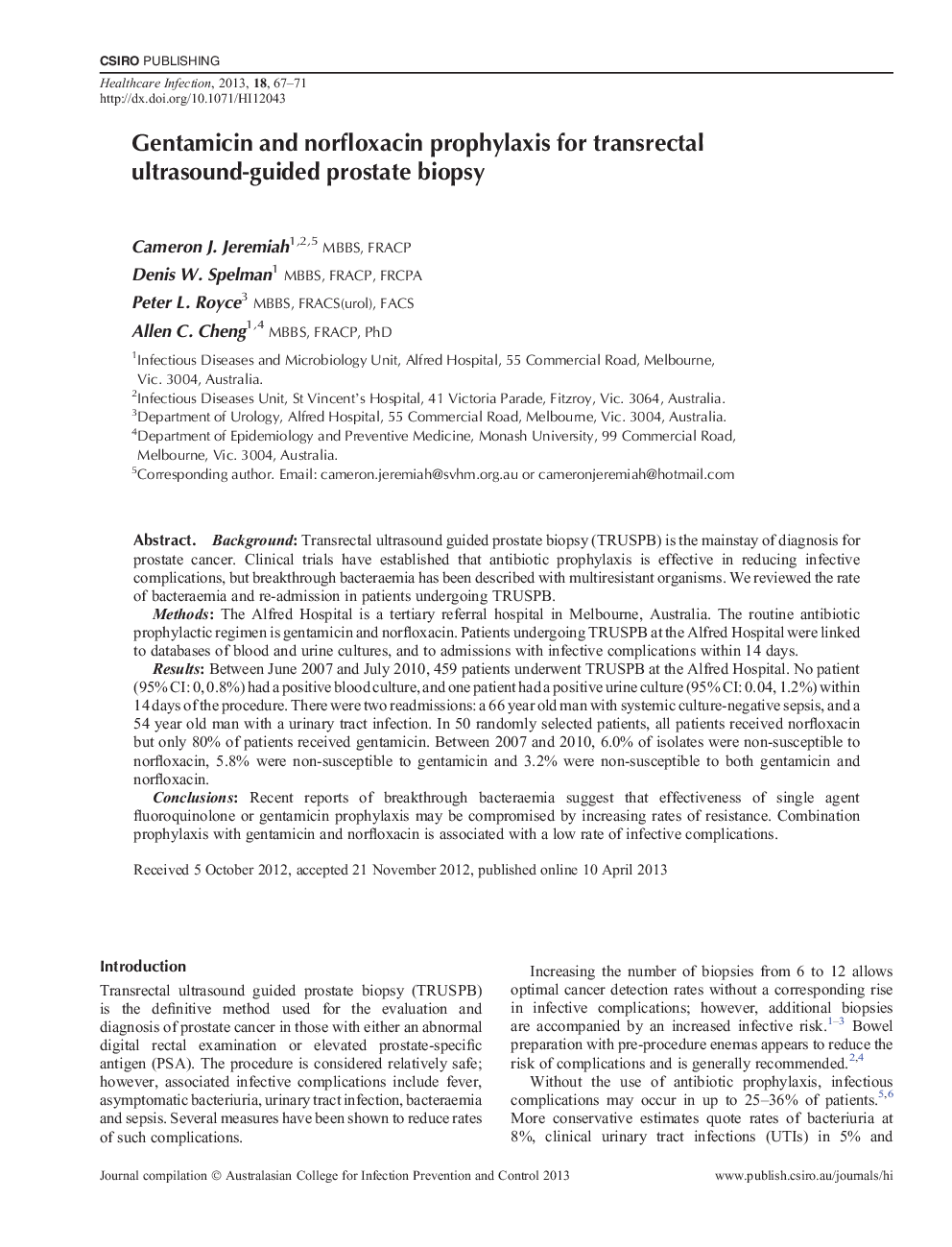| Article ID | Journal | Published Year | Pages | File Type |
|---|---|---|---|---|
| 2680247 | Healthcare infection | 2013 | 5 Pages |
BackgroundTransrectal ultrasound guided prostate biopsy (TRUSPB) is the mainstay of diagnosis for prostate cancer. Clinical trials have established that antibiotic prophylaxis is effective in reducing infective complications, but breakthrough bacteraemia has been described with multiresistant organisms. We reviewed the rate of bacteraemia and re-admission in patients undergoing TRUSPB.MethodsThe Alfred Hospital is a tertiary referral hospital in Melbourne, Australia. The routine antibiotic prophylactic regimen is gentamicin and norfloxacin. Patients undergoing TRUSPB at the Alfred Hospital were linked to databases of blood and urine cultures, and to admissions with infective complications within 14 days.ResultsBetween June 2007 and July 2010, 459 patients underwent TRUSPB at the Alfred Hospital. No patient (95% CI: 0, 0.8%) had a positive blood culture, and one patient had a positive urine culture (95% CI: 0.04, 1.2%) within 14 days of the procedure. There were two readmissions: a 66 year old man with systemic culture-negative sepsis, and a 54 year old man with a urinary tract infection. In 50 randomly selected patients, all patients received norfloxacin but only 80% of patients received gentamicin. Between 2007 and 2010, 6.0% of isolates were non-susceptible to norfloxacin, 5.8% were non-susceptible to gentamicin and 3.2% were non-susceptible to both gentamicin and norfloxacin.ConclusionsRecent reports of breakthrough bacteraemia suggest that effectiveness of single agent fluoroquinolone or gentamicin prophylaxis may be compromised by increasing rates of resistance. Combination prophylaxis with gentamicin and norfloxacin is associated with a low rate of infective complications.
